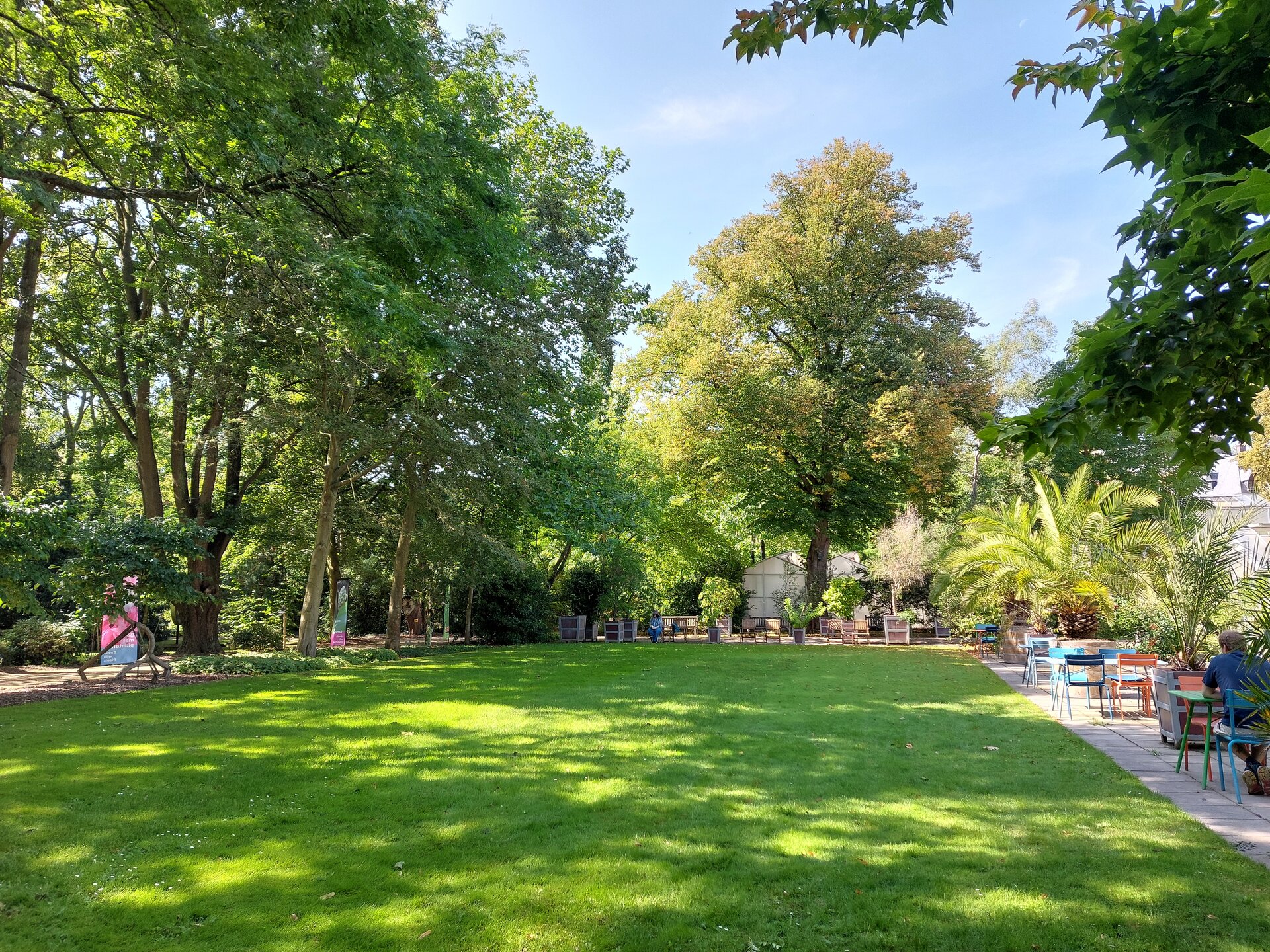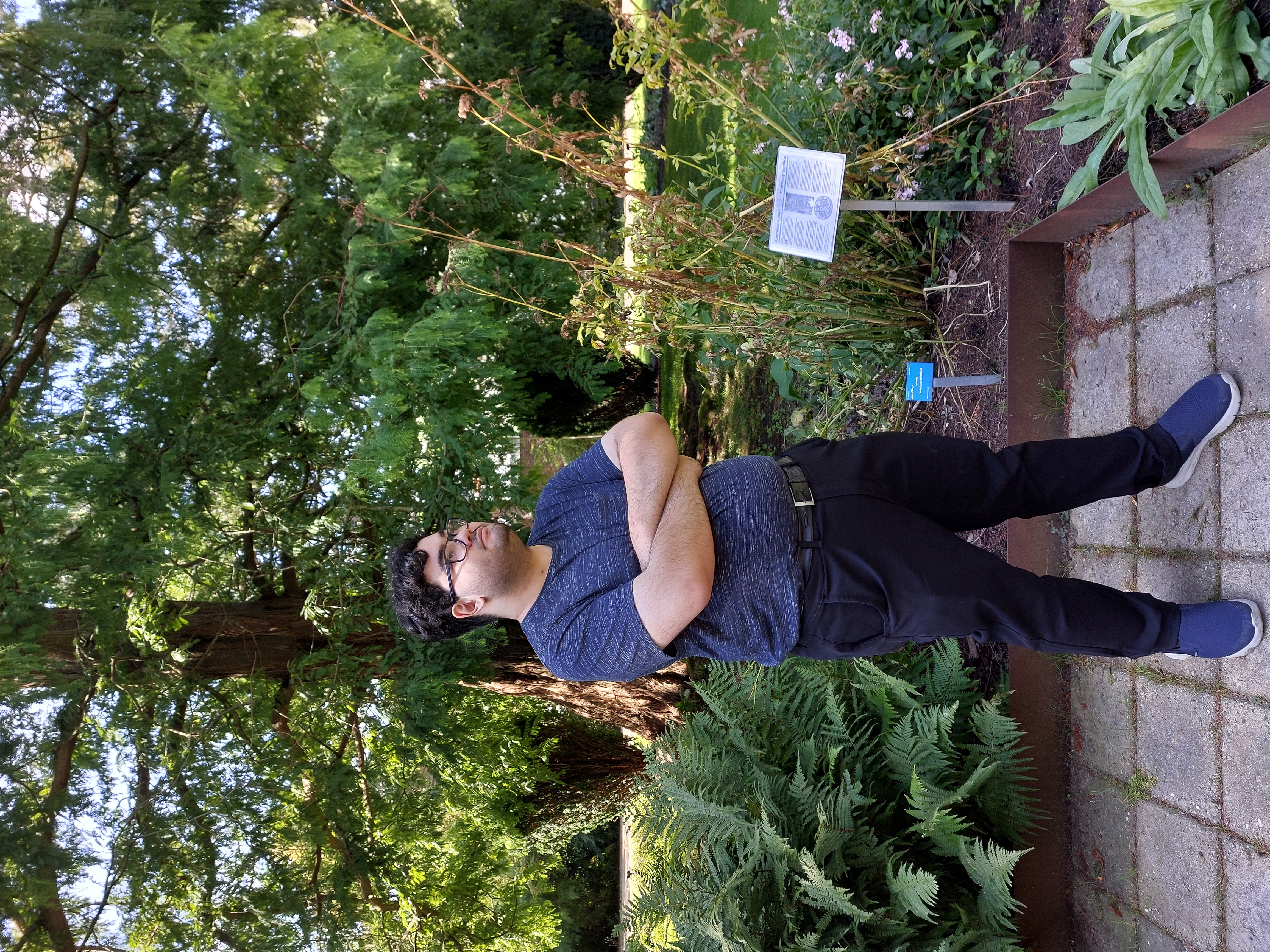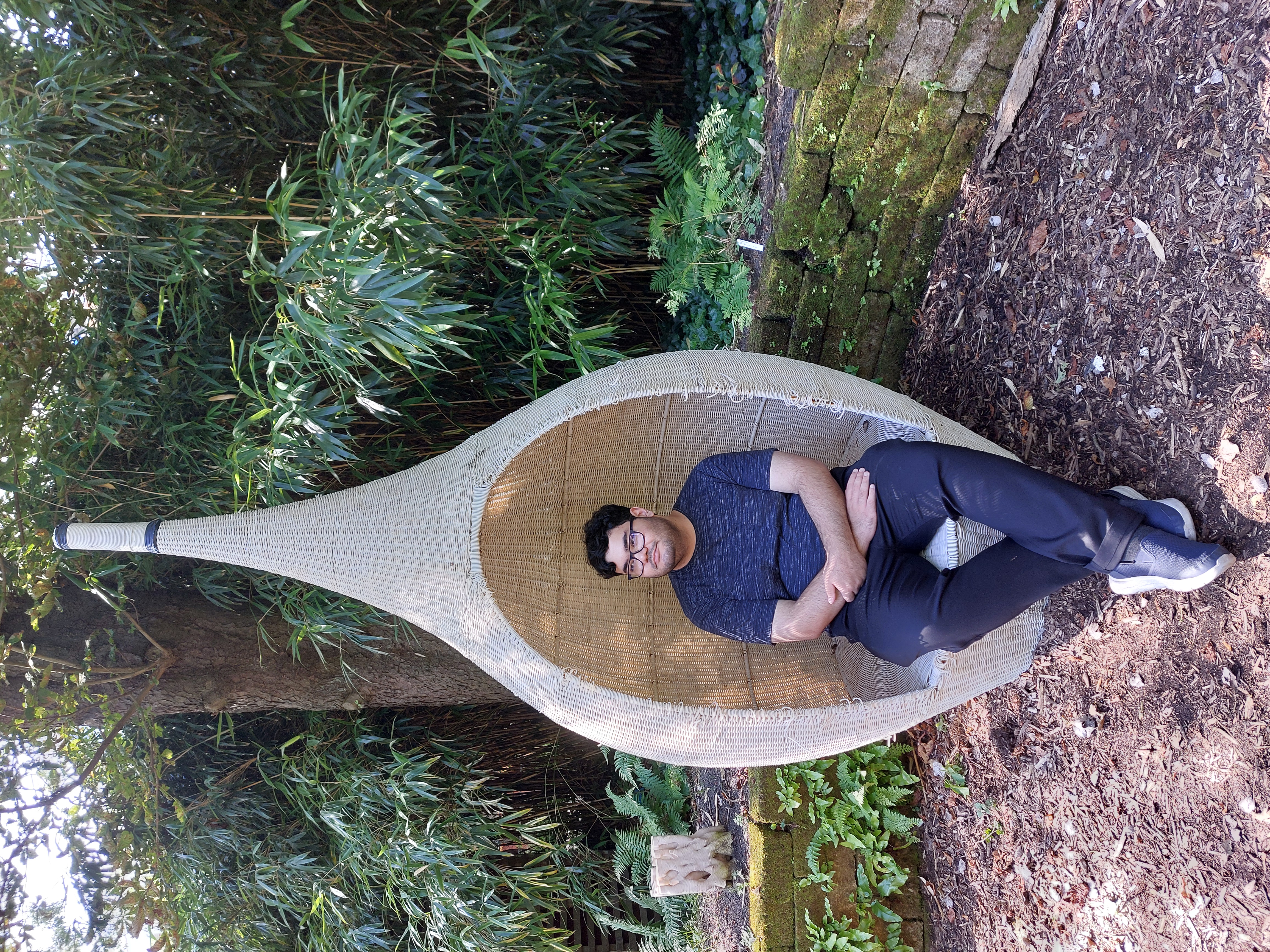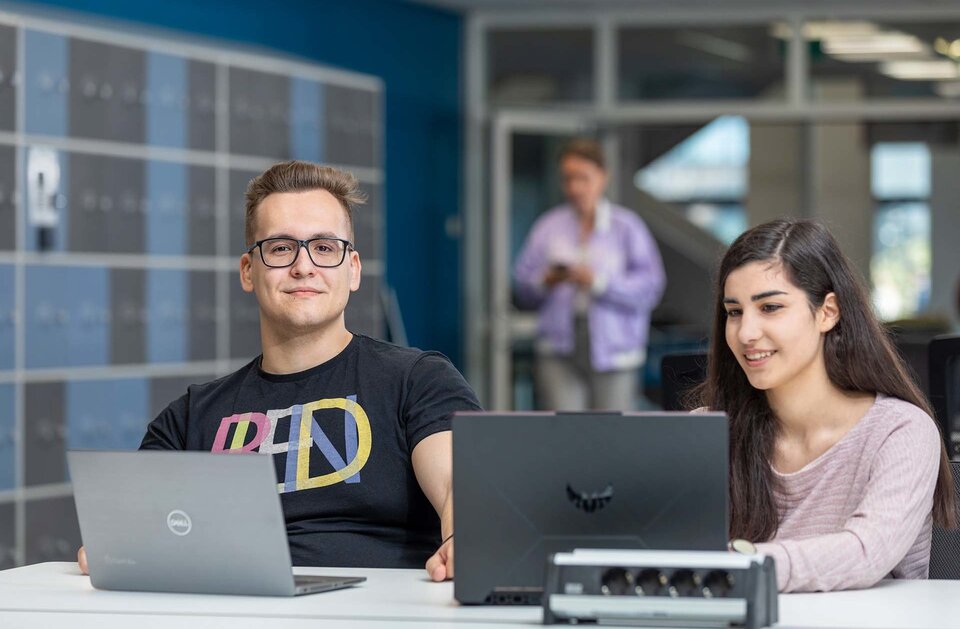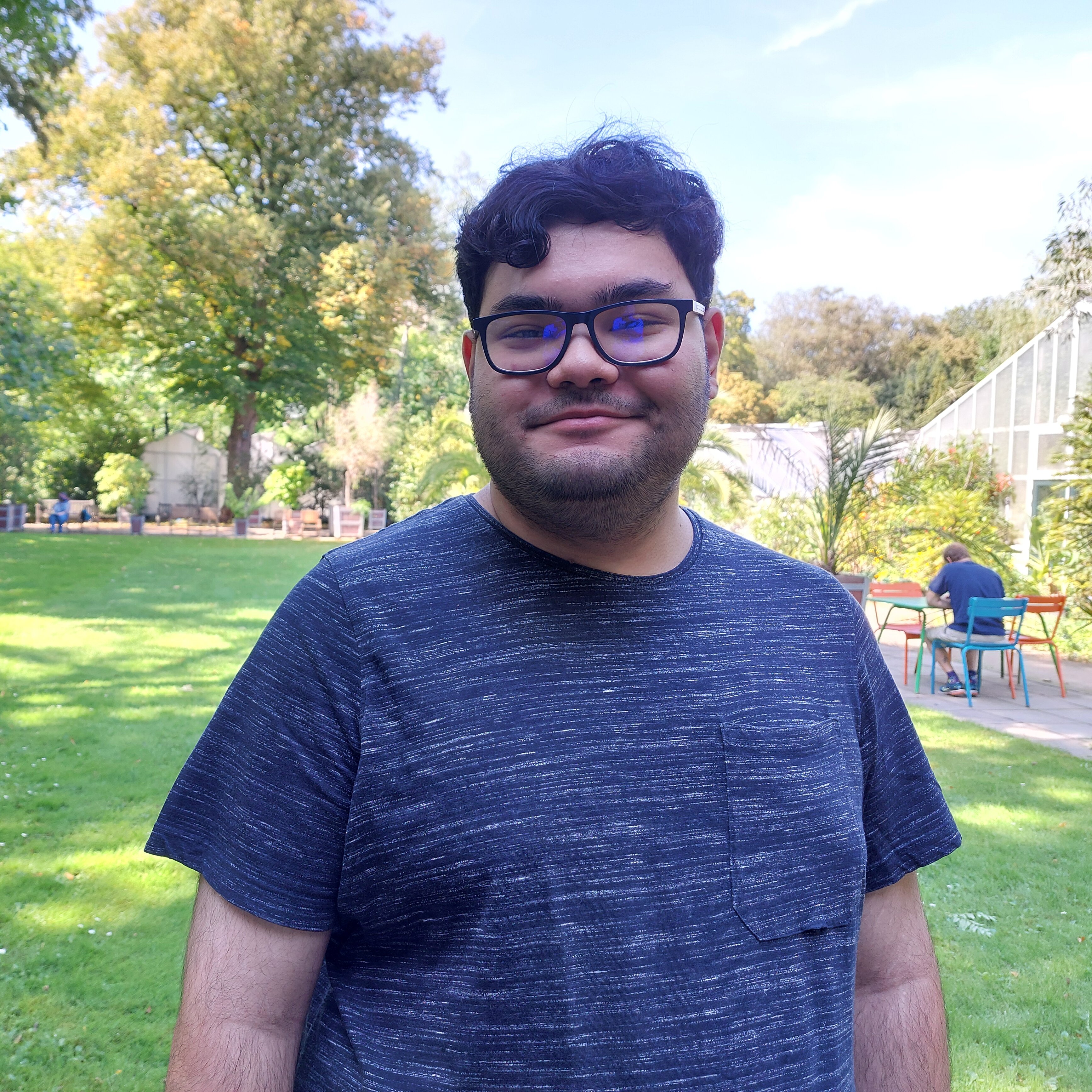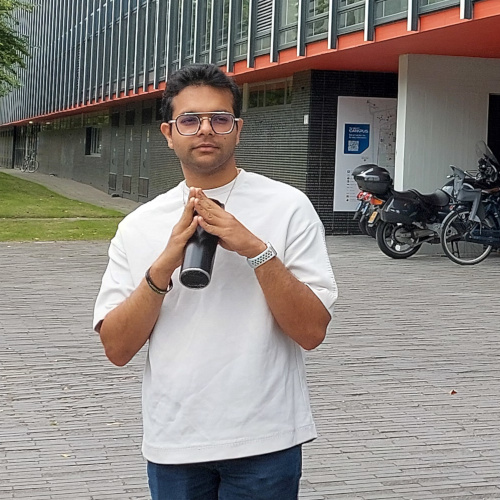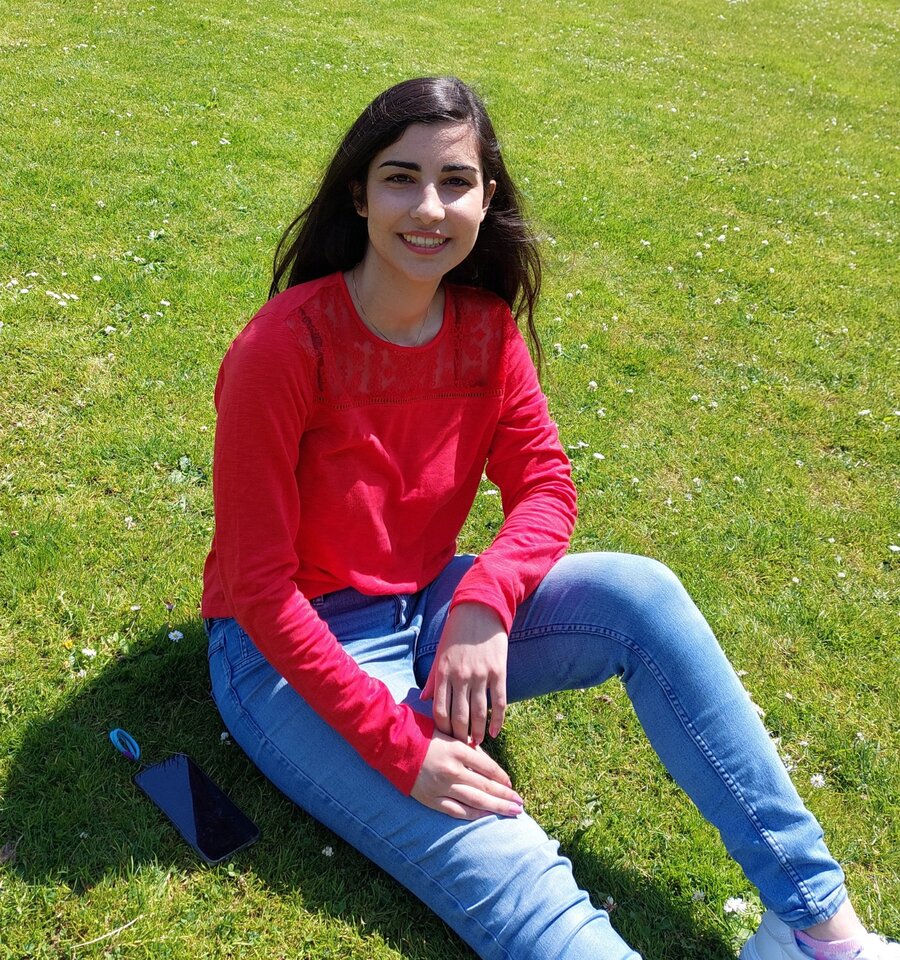Rising sea levels, melting glaciers, more frequent forest fires, frequent extreme weather events like floods, storms, droughts, and even the spread of parasites and tropical diseases. These events are all the effects of climate change. John T. van Asbrouck is a Computer Science & Engineering student, who wants to make an impact to combat climate change.
Over the past decade John T. noticed that the earth is warming up, and he saw many climate-related disasters on the news. He wanted to know: What can we do about it? “I think it’s important to take part in courses that make a difference”, explains John T. “That inspires me to find ways to use computer science to combat climate change. And that’s also why I signed up for the minor in Climate Change Adaptation & Mitigation.”
Which bachelor studies did you do, and why did you choose this one?
I am doing a bachelor’s in Computer Science and Engineering. I chose it because, in high school, I already enjoyed programming and learning more about how computers work. So, compared to other bachelor's programs, the bachelor's fits with what I’m going for.
What are you currently focused on?
I have a lot of interest in climate change, and that’s why I am doing a minor in Climate Change Adaptation & Mitigation. Over the past decade, I noticed that the earth is warming up, and I saw many climate-related disasters on the news. And I wanted to know: What can we do about it? I learned about the minor, and saw that it is aimed at students with backgrounds in engineering, physics, or mathematics, and that got me really excited.
The minor discusses the impact of climate change, how it affected the world in the past, and how it affects it still. We also learned about climate engineering solutions that can help us adapt to those climate changes and solutions that can help us mitigate the effects altogether. I think it’s important to take part in courses that make a difference. That inspires me to find ways to use computer science to combat climate change. TU Delft in general is very focused on reducing climate change and accelerating the energy transition. For example through projects like the Green Village, which is a test location for an entirely sustainable village. Research like this makes me proud to study at TU Delft. In general, I really like to work on courses and projects that have an impact on society. That’s also how I chose my bachelor's software project.
What was your bachelor software project focused on?
I worked on a project for a hospital in Belgium, with a group of five students. We worked on a database project that was related to patients. We designed a prototype system that allowed doctors to more easily transfer medical images to other hospitals in Belgium.
The main question for our project was to create the prototype system and see if it was feasible in a real setting. The main challenge we had to tackle was to ensure that data could be transferred from one hospital to another when the doctors or radiologists specifically requested them. We found out that it was difficult to quickly share medical images between hospitals on demand. It was a huge challenge to figure out how we could do that, especially when the doctors had already gotten used to completely different systems from each other. Teaching doctors a new system is quite hard. We had to try to figure out ways to adapt the new system to what they were used to.
We also visited the hospital during the project. We could come and have a look around at the environment. It was a very nice experience! It was also a very interesting change in scenery because before this we had all only worked on the project in the TU Delft library or in our own homes.
And what's the societal impact of the project?
I wanted to do a really big project, that really mattered. When the hospital project came up our group thought it was great that we could impact society, and improve patient care. We couldn't pass up the opportunity to help them improve the system that they had in mind. We could use scenarios that resembled real life to create the system and then we would analyse why it was or wasn’t working. Knowing that what we were building would be used in real life was a huge motivation.
TU Delft in general is very focused on reducing climate change and accelerating the energy transition. For example through projects like the Green Village, which is a test location for an entirely sustainable village. Research like this makes me proud to study at TU Delft.
Were there any challenges within this research project?
When you are working on programming by yourself is usually quite straightforward. It becomes a whole lot different when you tackle it with a group. When you’re working on a group assignment, especially with a bigger group, you have to think about group dynamics and what each person is going to work on. To create that balance, you have to learn about what other people are working on so you understand the project as a whole compared to only the part that you worked on. It's a very different experience from doing it yourself. To be honest, I'm not very comfortable with working in a group. That’s something I still have to learn. During some courses, we were randomly assigned partners, which I wasn't a big fan of, but I do understand the reasoning that in the real world, you don't get to choose the people that you work with. It was nice to get the experience and to challenge myself to adapt to situations that will come up in the future.
What do you like about studying at TU Delft?
I liked the variety of topics we learned about and how deep we went into each topic. The courses give you an idea of where it's going if you would continue in that field. They give you a preview of what’s to come in the master study. And that’s quite interesting because when you get that preview, you think: there’s so much more to learn. But then you look back and you think: I have already learned around 10 weeks worth of content. And you realize that you’ve gained an understanding of the subject.
Something else that I like about TU Delft is that the campus is very vibrant and close to nature. More than other universities that I looked at online before coming here. I walk to the university from where I live, and most mornings I walk through the park. I enjoy the ducks and geese, and people walking their dogs. I'm from Bangkok, in the middle of the city, and there it's mostly just cars and cars and motorcycles and buildings and smoke everywhere. I enjoy the tranquillity of the nature here.
What are your plans for the future?
I am definitely considering doing a master's program at TU Delft. I'm still thinking about which master I want to do. What I know for sure is that I would also like to make an impact during my master's. And it would be really amazing if that allows me to find new ways to use computer science to combat climate change.
